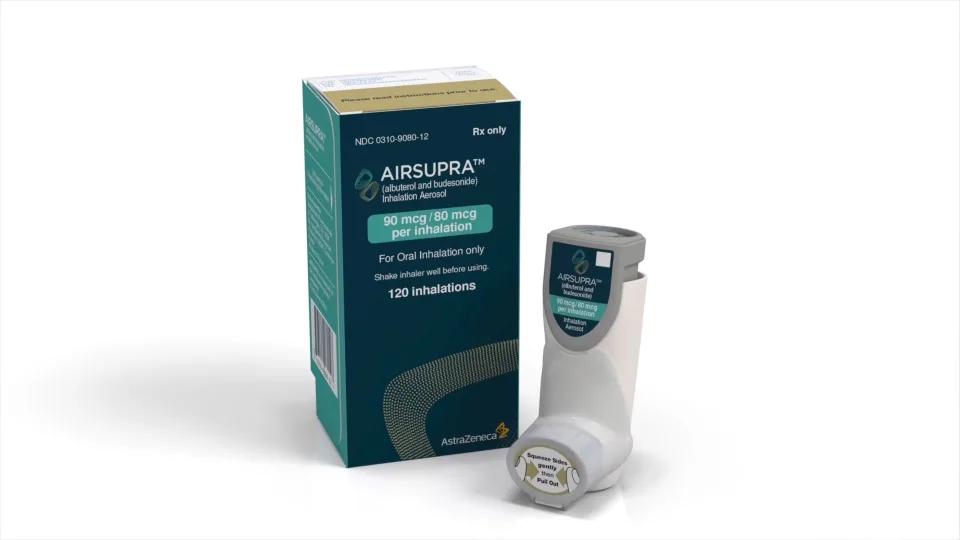AZ, Avillion's Airsupra aces asthma rescue therapy trial

A trial of AstraZeneca and Avillion's first-in-class asthma rescue inhaler Airsupra has been halted early after the drug outperformed a standard therapy.
The phase 3b BATURA study showed Airsupra (albuterol/budesonide) achieved a statistically significant reduction in the risk of severe asthma exacerbations when used as needed for rescue therapy compared to albuterol on its own.
BATURA enrolled patients with intermittent or mild persistent asthma, including those on short-acting beta-agonists (SABA) alone, low-dose inhaled corticosteroid (ICS) maintenance therapy, or leukotriene receptor antagonist (LTRA) maintenance therapy.
The benefit seen with Airsupra was so pronounced and "overwhelming" that the trial's independent data monitoring committee recommended the trial be halted early, said AZ in a statement.
Airsupra (formerly PTO27) has been approved in the US since the start of 2023 for as-needed use to reduce the risk of asthma exacerbations, the first drug to combine a SABA and ICS in one inhaler, although, its use was restricted to adults aged 18 and over, despite an attempt by AZ and Avillion to get paediatric labelling as well.
Before that, SABA rescue inhalers were used to alleviate symptoms of an asthma attack, but these do not address the underlying inflammation involved in asthma.
Airsupra's approval was based on the MANDALA trial in patients with moderate to severe asthma and the DENALI study in mild to moderate asthma, with BATURA now backing up those results in a patient population in between those two groups.
"People with asthma are at risk of severe exacerbations regardless of their disease severity or level of control," said James Donohue of the University of North Carolina, who chairs the BATURA monitoring committee.
"By focusing on patients with intermittent or mild persistent asthma, the strong BATURA trial results further demonstrate the clinically meaningful benefit of an anti-inflammatory rescue approach to reduce the risk of severe exacerbations by treating both symptoms and inflammation at the same time.," he added.
An estimated 136 million asthma exacerbations occur globally each year, 10 million of those in the US. These can be physically threatening and emotionally significant for patients, and in extreme cases can be fatal.
Analysts have previously suggested that Airsupra could make sales of around $500 million a year, which would be a useful contributor to AZ's respiratory revenues, as it faces the loss of patent protection for blockbuster asthma and chronic obstructive pulmonary disease (COPD) therapy Symbicort (budesonide/formoterol), which contributed around $1.5 billion to its revenues in the first half.
So far, uptake of Airsupra has been modest, with the drug making $21 million in the first six months of this year. AZ has said, however, that reflects "introductory discounts" and masks "strong US launch momentum and volume uptake," and expects sales to build now that the drug is rolling out in international markets.












